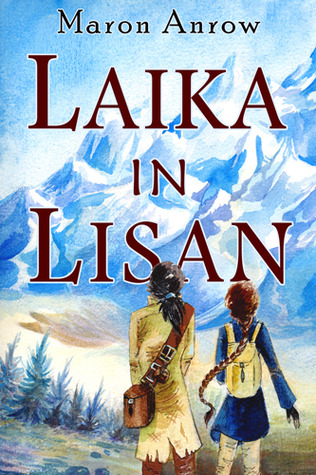(Image found on Goodreads)
Laika has always enjoyed learning about Lisan. When she is given a chance to visit the country that always keeps many out, she jumps on it. But politics have a part to play and her biggest dream may turn into a nightmare.
Official Description from Goodreads: Laika Roen has always been strangely attracted to Lisan, a mysterious and isolated country where the citizens worship their despotic leader. When Laika suddenly receives an invitation to travel to Lisan as a visiting scholar, she abandons her career as a private tutor to pursue adventure in Lisan.
But Laika gets more than she bargained for when her trip is disrupted by violence and she's forced to set out on her own. As she journeys through forbidden sections of the foreign country, Laika discovers horrible truths about the relationship between Lisan's leader and his people.
Can a simple scholar change the course of an entire country? And even if she can, should she? The distinction between right and wrong blurs as Laika explores not only Lisan, but her own conscience.
Maron Anrow is quick to draw the reader in by giving them a glimpse at the end. But not enough to do more than make readers curious, almost forcing them to read on and find out more about Laika, Lisan and the dangerous adventures that Laika has.
Descriptions of character's emotions are able to get those feelings across to the reader without going overboard or using more words than necessary. And yet, it's undeniable that you immediately feel what Maron Anrow is trying to portray through her words.
Politics is always a difficult thing to understand(at least to me) so Laika in Lisan having political agendas in the book should have made me lose interest. But Maron Anrow explains it out, not all at once, but in enough small parcels for the reader to understand clearly and add to the drama that is taking place.
I can't forget the characters. Laika's thought processes are interesting, to say the least. And Rodya is a mystery that you just have to solve. It keeps the reader interested, drawing them into the book. And while romance plays a part, it's not a large part.
There's also several difficult questions that are brought up and they don't have easy answers, if any at all. Many of them are moral and it's difficult to watch Laika go through, trying to keep herself from being destroyed. And yet I was frustrated with Laika. She seemed to be pushing responsibility off on others for the most part and this annoyed me to no end.
Then there's the ending. It's open enough to allow readers to draw their own conclusions but it also ends the book effectively.
Laika in Lisan was a good book, and if you find yourself looking for books that aren't necessarily about romance but do include some than you should certainly check out this book.

No comments:
Post a Comment
I love to hear what you have to say and I'll try to reply to every comment!